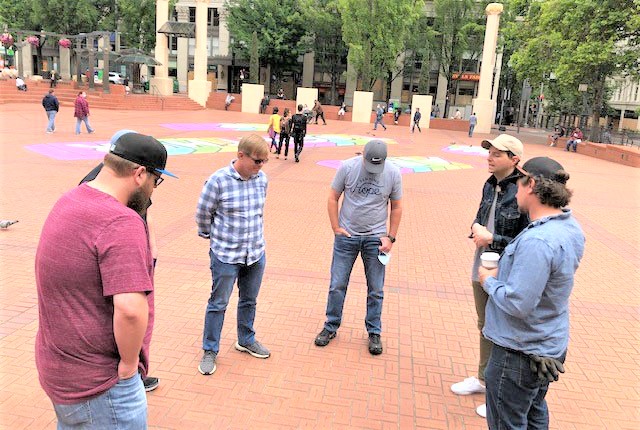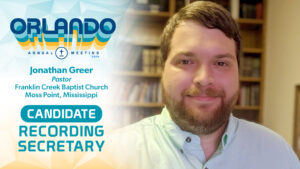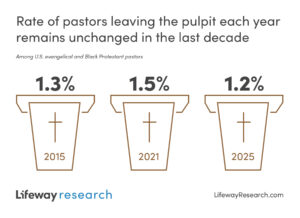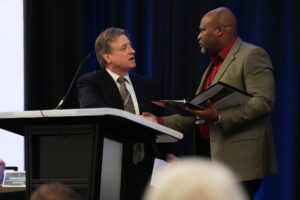PORTLAND, Or. (BP) — “Don’t give up on Portland. This is a place filled with people that Christ has died for,” pleads Aaron Bennett, pastor of Garden Church in downtown Portland, Or.
Bennett said news in recent weeks from the city roiled by unrest, protesting, and violence might tempt some in the Christian community to regard it as hopeless.
According to Bennett, the hunger for the Gospel and the need for peace and hope has never been greater.
“I really encourage people, ‘Don’t see the entire world through the political agenda,'” Bennett says. “I believe it’s so important to be engaged in civic life. However, we have to believe in Portland and that there’s a greater kingdom we are called to, that there is a greater sense of government under the Prince of Peace that we are called to reflect.”
Bennett, whose one-year-old church plant averages 100 in attendance each week, says the desire from many in the city to know God personally is actually incredibly high. The Gospel belongs in Portland,” he says.
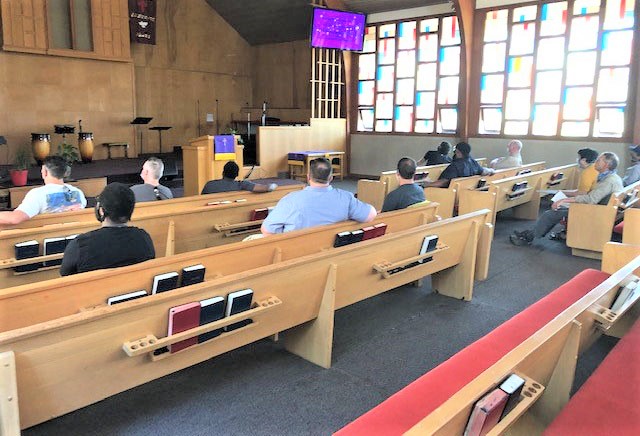
“There is this sense where we want to fight for the narrative of our city,” Bennett explains. “This city is visible and sometimes becomes the staging ground for political theater.
Some of us suspect that a lot of the protests we see may not even be people who live in Portland.”
Bennett, along with other local pastors, has participated in prayer walks both during the day and at night, as well as other community outreach endeavors. Bennett says his desire is to establish a calming presence in the midst of the unrest, because that reflects the presence of God.
“In a time of tremendous anxiety, we see it as our calling to live as the called-out people of God in a way that is so anchored to God’s Word,” Bennett says. “We’re calling on brothers and sisters… to be sober-minded, to be measured in our approach, to be thoughtful and wise.
“In a time of tremendous anxiety, we see it as our calling to live as the called-out people of God in a way that is so anchored to God’s Word.”
Aaron Bennett, pastor of Garden Church
“We as a church feel like it is our job to show up, to love the protesters, to see them through Kingdom eyes, that it’s our job to love law enforcement, to realize these are human beings behind the uniform, and to not let the political agenda frame every conversation that we are able to have.”
Bennett believes that in 100 years, political parties will fade but every human soul will be somewhere. He says it’s essential that Christians remain focused on that truth and bring the eternal mindset into this moment of turmoil-filled conversations.
Clay Holcomb, Send City missionary to both Portland and Seattle with Southern Baptists’ North American Mission Board, says taking steps to bring that healing mindset to the people in Portland is essential.
“Our (church) planters have to be careful to maintain their relationships with these initiatives, and at the same time stay faithful to the Gospel,” Holcomb stresses.
Holcomb says the biggest current prayer need in Portland is for a dispelling of the nightly anger and violence that consumes the protests.
“There needs to be peace on the surface, but the greater issue is peace in people’s hearts,” he contends. “We’re dealing with situations that everybody’s dealing with; they’re just at a heightened level here. The fear and anxiety in the minds of many northwesterners is at an incredible rate.”
Like Bennett, Holcomb says fear might lead some to think Portland is hopeless and that there is an overwhelming, unconquerable sense of despair in the city.
“My prayer is for peace but then also for Gospel conversations,” Holcomb says. “I think about God’s concern for us, and the Gospel message, and that this area needs to hear it. That’s a message of hope and that’s what our planters are trying to maintain.”
He says conversations are occurring and at individual, relational levels, progress is being made for the Gospel. While there is a spiritual heaviness, Holcomb says he sees light coming through.
Bennett points to 1 Peter 1:5, saying it “reminds us that light always pierces the darkness.”
“Send missionaries to dark places,” he says. “Send Gospel light to tough places, because the real way people change is not from the outside in, it is from the inside out.
“We have seen people who are enemies of God fall in love with Jesus and be transformed by the power of the Gospel, and that’s how we’re going to see change in our country, in our cities. Our vote is important, but our Gospel is powerful.”

